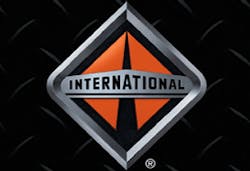Navistar International Corp. has announced that its South American engine subsidiary, International Engines South America, has agreed to acquire MWM Motores Diesel Ltda (MWM), a major Brazilian diesel engine producer, at an undisclosed price.
Although the agreement has been completed the transaction is subject to approval from Brazilian anti-trust regulators, said International, which noted only minimal synergies can be achieved prior to that approval.
The new company will be operated as MWM International Industria da Motores da America do Sul Ltda. Waldey Sanchez, currently managing director of International’s South American engine business, will serve as president & CEO.
According to Sanchez, the new firm has the potential to help Navistar broaden its diesel offerings in the U.S.
“We have tremendous diesel expertise for engines under four liters in displacement,” Sanchez told Fleet Owner. “There’s been no doubt that light pickups and vans in the U.S. market are trending towards diesel like their heavier counterparts – and that allows us to better complement International’s range of offerings in the U.S.”
Navistar entered the South American market in March, 1999 when it acquired a 50% interest in a company that was renamed Maxion International Motores S.A. It became the sole owner in 2001 and renamed its ISEA. The South American engine business produces a full line of diesel engines ranging from 95 to 275 hp. for use by original equipment manufacturers. It exports diesel engines to Mexico, Australia and the United Kingdom from factories in Canoas, Brazil and Jesus Maria, Argentina.
Sanchez noted that MWM – which produced 85,000 engines in 2004 and grossed revenues of approximately $370 million – was IESA’s main competitor in the Brazilian and South American diesel engine market, so with this acquisition, its engineering resources get added in as well. That’s a key factor as engine makers continue to struggle with the investment demands required by ever-tighter emission regulations.
Sanchez siad that, in Brazil, roughly 90% of the light trucks are powered by diesel engines with only 10% using gasoline -- which is completely the reverse in the U.S., where 90% of the light-duty pickups are powered by gasoline engines.
“Meeting emission changes is one of our biggest challenges,” he explained. “We could not justify the investments required when our [IESA’s] production volumes were between 60,000 and 80,000 units per year. Now, with MWM added in, we’re looking at 150,000 to 200,000 units per year – and at that volume level we can afford the investments required to meet emission regulation changes worldwide, not just in the U.S.”
Daniel Ustian, Navistar’s chairman, president & CEO, said that MWM produces a broad line of medium- and high-speed diesel engines ranging from 50 to 310 hp. for use in pickups, vans, light and semi-heavy trucks, as well as agricultural, marine and electric generator applications.
OEM customers include a number of the most important corporations in the automotive, agricultural and industrial segments, including General Motors, Volkswagen and Nissan. "One of our specialties is building diesel engines for light trucks that are the equivalent of the GM S-10 and Ford Ranger pickups found in the U.S.," said Sanchez.
“This acquisition supports our company’s strategy to grow our engine business at both ends of the range of diesel engines currently produced … and spreads the cost of our emissions solutions over a broader range of engines,” Ustian said.
“We will be able to better serve customers with a wider range of products and leverage our industry-leading emissions technology globally,” Ustian added. “Additionally, the acquisition will allow International to tap the huge potential in both North and South America for cost-effective dieselization of Class 5 and smaller vehicles.”
About the Author
Sean Kilcarr
Editor in Chief
Sean Kilcarr is a former longtime FleetOwner senior editor who wrote for the publication from 2000 to 2018. He served as editor-in-chief from 2017 to 2018.
